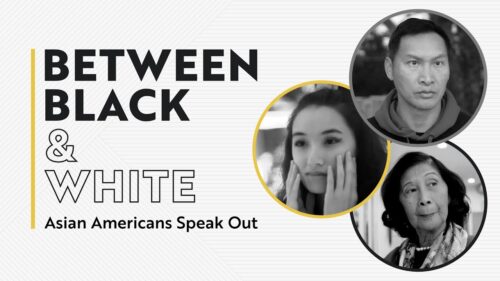‘Black Panther’ struggles at Chinese box office, but not because of its ‘blackness’

Black Panther may be the biggest blockbuster in 2018, but that doesn’t mean that audiences in China feel the same way about the superhero movie as their North American counterparts. While the Ryan Cooler-directed film has continued to hit important milestones at the box office — it has dominated the North American box office for five consecutive weekends and is poised to become the highest-grossing movie in the Marvel Cinematic Universe (MCU) — its performance in China has been middling at best.
It didn’t start out this way. In fact, early box office numbers suggested an auspicious run for Black Panther. It earned $20.7 million on its opening day, the second-highest debut for a Marvel movie in China. Its release date also worked to its advantage, as it was the first Hollywood blockbuster to open in Chinese theaters after a “blackout period” during the Chinese New Year holiday, a protectionist measure that bans the release of foreign movies during more lucrative moviegoing seasons.
But its earnings began to fall precipitously afterwards. Currently, it is trailing Tomb Raider and two domestic propagandistic films, Operation Red Sea and Amazing China, at the daily box office. And even though Black Panther boasts a high 97 percent rating on Rotten Tomatoes, on Douban, China’s biggest movie review website, the movie has only obtained a 6.7 score, one of the lowest among all MCU films. (UPDATE, 3/22, 1:26 pm: We’ve edited the wording in the previous sentence to indicate that Black Panther is not the lowest rated MCU film on Douban, only one of. Captain America: The First Avenger received a 6.5 rating, and Thor has a 6.7 rating.)
Black Panther’s unremarkable performance in China is sure to give fuel to studios’ doubts about whether Chinese audiences would embrace a film with an all-black cast. In the Chinese marketing of the film, the blackness of Black Panther seems to be subtly downplayed. Instead of featuring the whole cast, as the U.S. poster does, the official Chinese movie poster of the film shows the lead, Chadwick Boseman, alone, and his face is barely visible through his Black Panther suit.
Certainly, China doesn’t have a good track record when it comes to the portrayal of black people. One of the most notorious examples of China’s racism or limited understanding of race was a tone-deaf laundry detergent commercial in 2016 that had a black man being shoved into a washing machine and then emerging as a “clean” Asian man. And earlier this year, the CCTV’s Spring Festival Gala caused social uproar when a skit that was intended to celebrate Sino-African relations included a Chinese actress in blackface.
Western media outlets like Quartz have zeroed in on the racism that supposedly undergirds Chinese moviegoers’ criticism of Black Panther. Specifically, Quartz has focused on Douban reviews of the film that complain about how the movie’s “blackness” — the nearly all-black cast on screen and the predominance of night scenes — made the viewing experience of Black Panther either soporific or “a torture to the eyes.” By contrast, Chinese entertainment outlets like Yuledujiaoshou have contended that in China, Marvel films aren’t necessarily the mega-hits that they are in North America and that Black Panther’s unexceptional performance is far from an isolated example. Industry insiders point out that there has always been a disparity between the cinematic preferences of Chinese and American audiences. This disparity has caused franchises like Star Wars to receive the cold shoulder in China, while the latest installments from film series like The Transformers, The Pirates of the Caribbean, and Resident Evil to be bolstered by the earnings they make in the world’s second-largest market.
A more comprehensive look at Douban reviews of Black Panther attests to the multiple factors that are in play in Chinese viewers’ dissatisfaction with the film. Several reviews took issue with the movie’s smaller scale. Instead of the “we have to save the world from being destroyed” high stakes of, say, an Avengers film, Black Panther focuses primarily on the titular character’s struggles to defend and keep his throne. This creative decision perhaps made the movie less compelling for Chinese viewers, who may be overly familiar with the trope thanks to the political infighting frequently portrayed in popular dynasty dramas. Many reviews also seem to express a general fatigue with the superhero movie genre, and criticisms of the movie’s “formulaic” and “uninspired” plot was a common through line on Douban.
Black Panther in China: A red carpet opening night near Tiananmen Square





